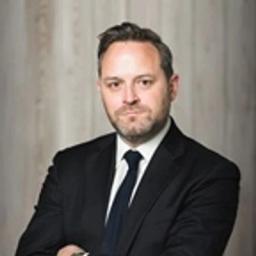Pandora Papers: Waking up or sleepwalking?

By Niall Hearty
Niall Hearty argues the Pandora Papers scandal is a wake-up call for European authorities
It was almost inevitable the huge Pandora Papers leak, revealing hidden wealth, tax avoidance and in some cases money laundering by some of the world’s elites, would lead to calls for change. The sheer weight of evidence in the leak makes it near impossible to argue existing efforts to tackle such financial wrongdoing have succeeded.
Many have argued this should be a wake-up call in the battle against financial crime, with some commentators referencing past scandals and arguing little progress has been made.
A quick check shows the Panama Papers leak of 2016, 2017’s Paradise Papers and last year’s FinCEN Files all prompted hand-wringing and strong statements about them needing to prompt reforms by global powers. And yet, here we are, with this latest leak showing the waking up does not appear to have happened.
A wake-up call
If anything, it appears the only awareness being raised is by hundreds of media organisations around the world. They have worked their way through the documents, relating to almost 29,000 offshore accounts, in order to find the most powerful stories. Some documents involve over 130 billionaires and 14 current heads of state or government, including several high-profile leaders within the European Union (EU). This raises many uncomfortable questions for EU heads.
The European Commission insists the EU has done much in the past five years to tackle tax avoidance. European Commission spokesman Daniel Ferrie stated banking secrecy has effectively been abolished, with information on tax-saving schemes now being exchanged across borders and a stricter line being taken towards money laundering. Mr Ferrie also emphasised a further law to restrict shell companies – which often serve as vehicles for tax avoidance – is planned by the end of 2021.
Four years ago, in the wake of the Panama Papers, the EU introduced a list of havens. Ironically, the only country on the list appears extensively in the Pandora Papers is Panama itself. This indicates the EU list is now in need of expanding. There are many other significant tax havens appearing to be well used – at least according to the Pandora Papers – but their significance has not been officially recognised.
Enforcing legislation
Maybe this is why the EU has now stated it intends to take a more robust approach. EU tax commissioner Paolo Gentiloni clarified the European Commission’s intentions to present new legislative proposals to tackle tax avoidance and tax evasion by the end of this year.
Many will see this as a determined effort by the EU to frustrate the use of offshore companies by the rich and powerful who look to reduce their tax bills. Many may also wonder just how well-enforced and effective any such legislation will be.
For the optimists, the arrival of the European Public Prosecutor’s Office (EPPO) may give the EU’s statements more credibility than they may otherwise have had. Created in June, the EPPO serves as an independent public prosecution office tasked with investigating and prosecuting economic crimes against the financial interests of the EU.
Based in Luxembourg and headed by a European Chief Prosecutor and supported by a prosecutor from each EU member state, it can lead investigations across the EU. With its mandate including the investigation of fraud relating to EU expenditure, VAT fraud, corruption, misappropriation of funds and money laundering, it is unlikely to ever lack a sizeable workload.
For now, it is early days for the EPPO. But the scope of its work will affect both EU and non-EU bodies and individuals, and it expects to be starting with an estimated 3,000 cases. There is little doubt it will become a major figure in the investigation of financial wrongdoing.
It does, in part at least, represent the EU’s increased awareness of the nature and scale of the problems it faces. With EPPO, the EU can, with some justification, claim to have heeded the wake-up call that has been repeatedly ringing in its ears for a number of years. Yet it remains to be seen if its eyes have been opened to the full extent of the problem.
Niall Hearty is legal director financial crime specialists Rahman Ravelli rahmanravelli.co.uk

